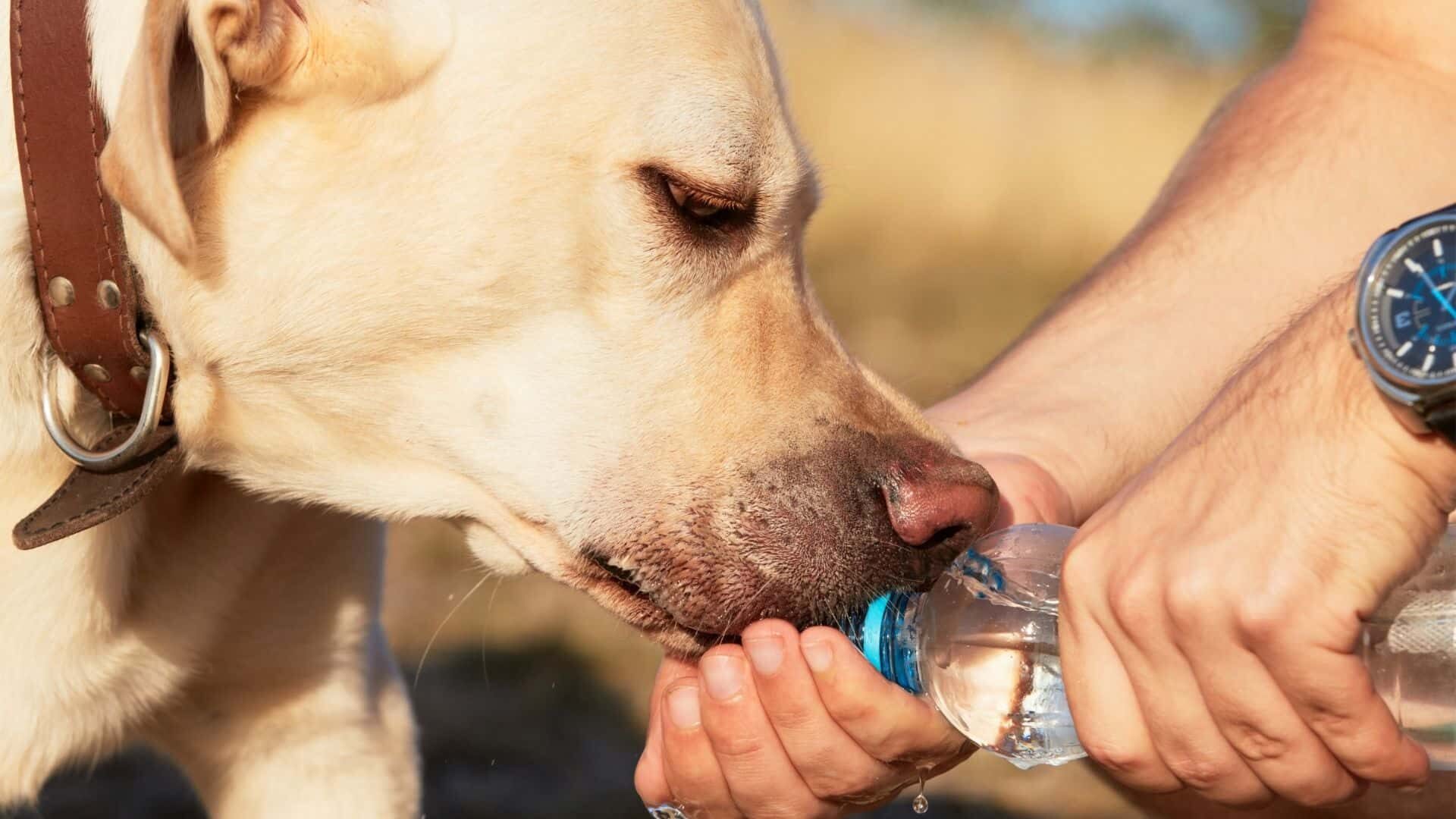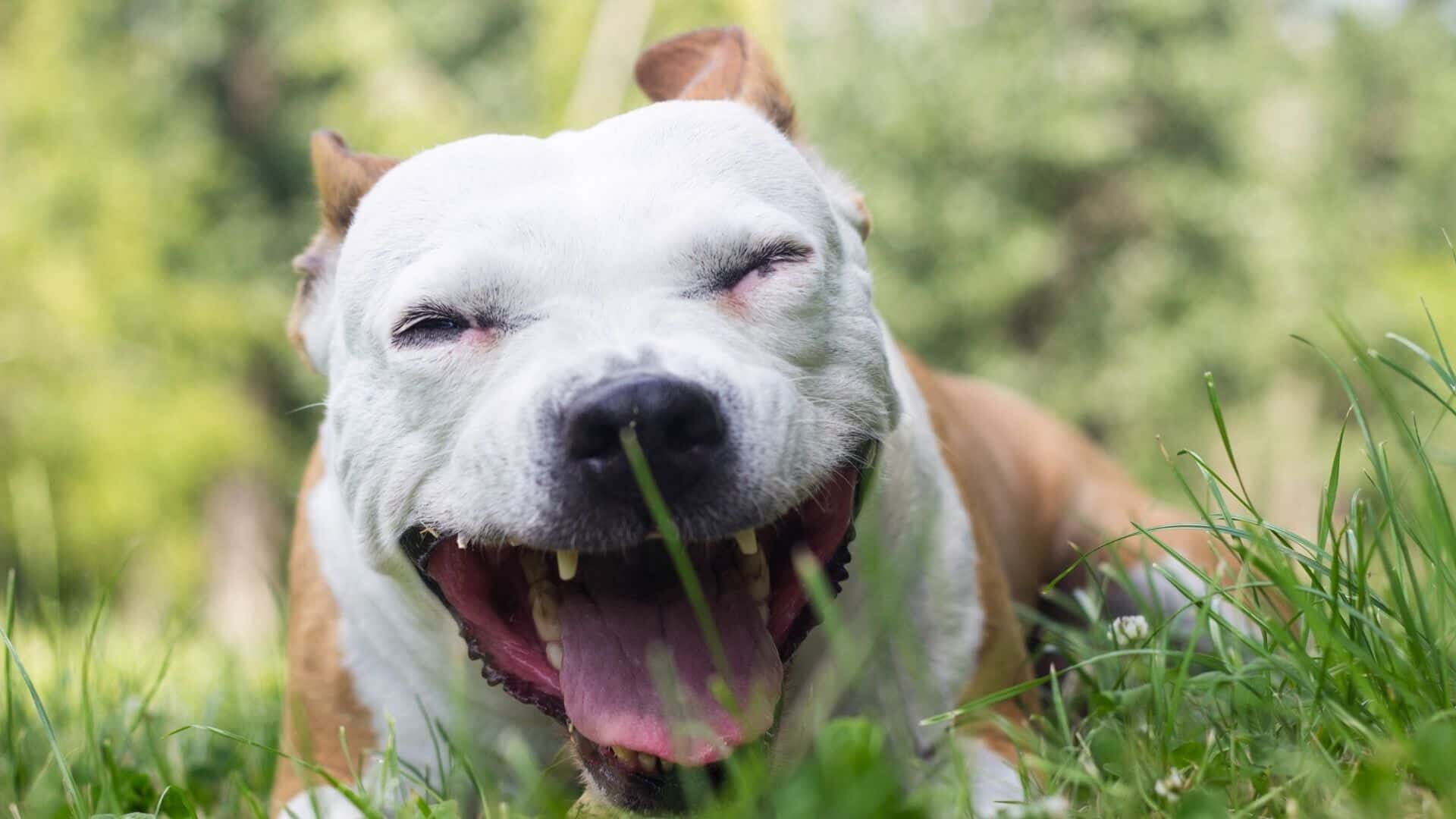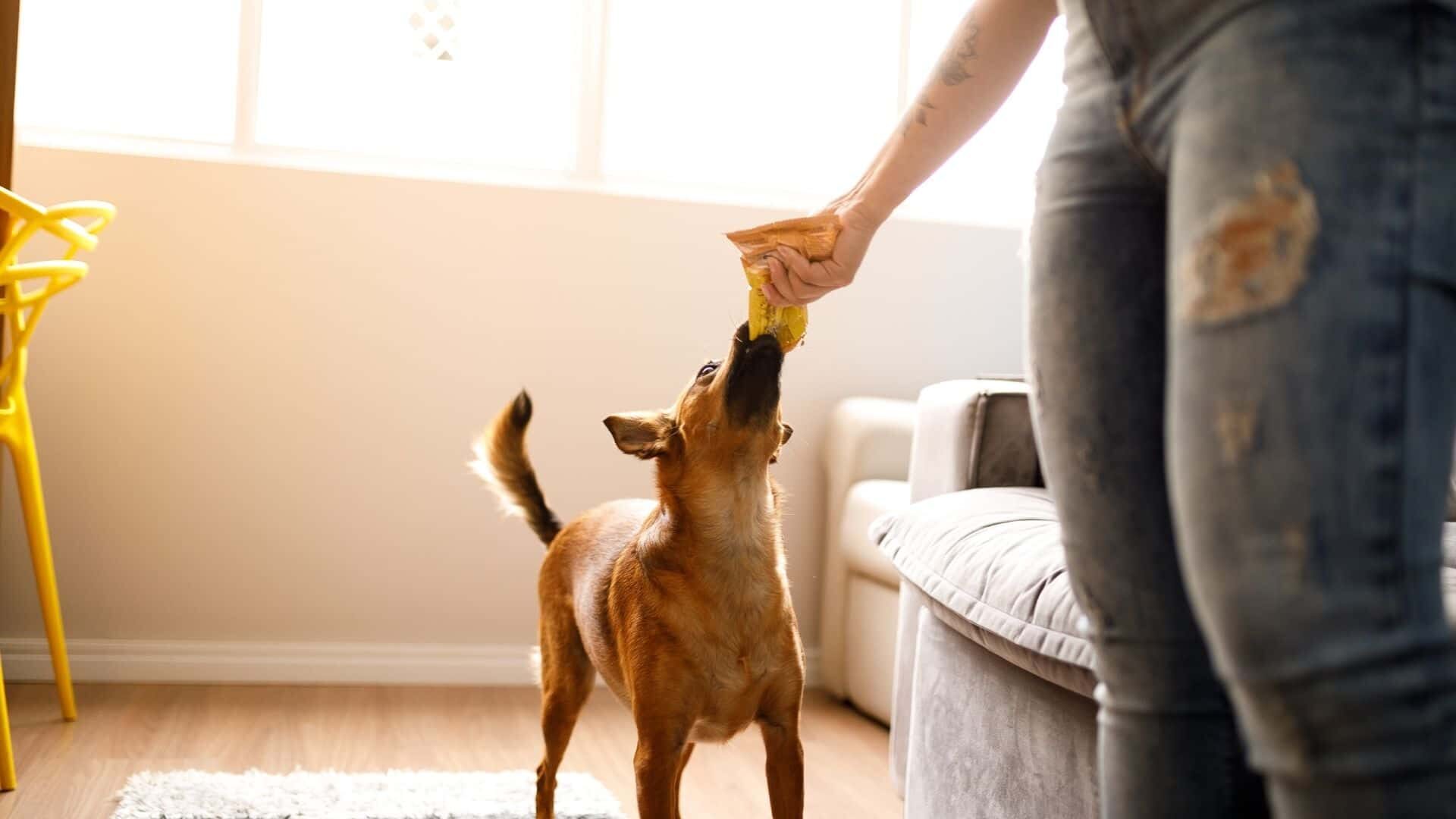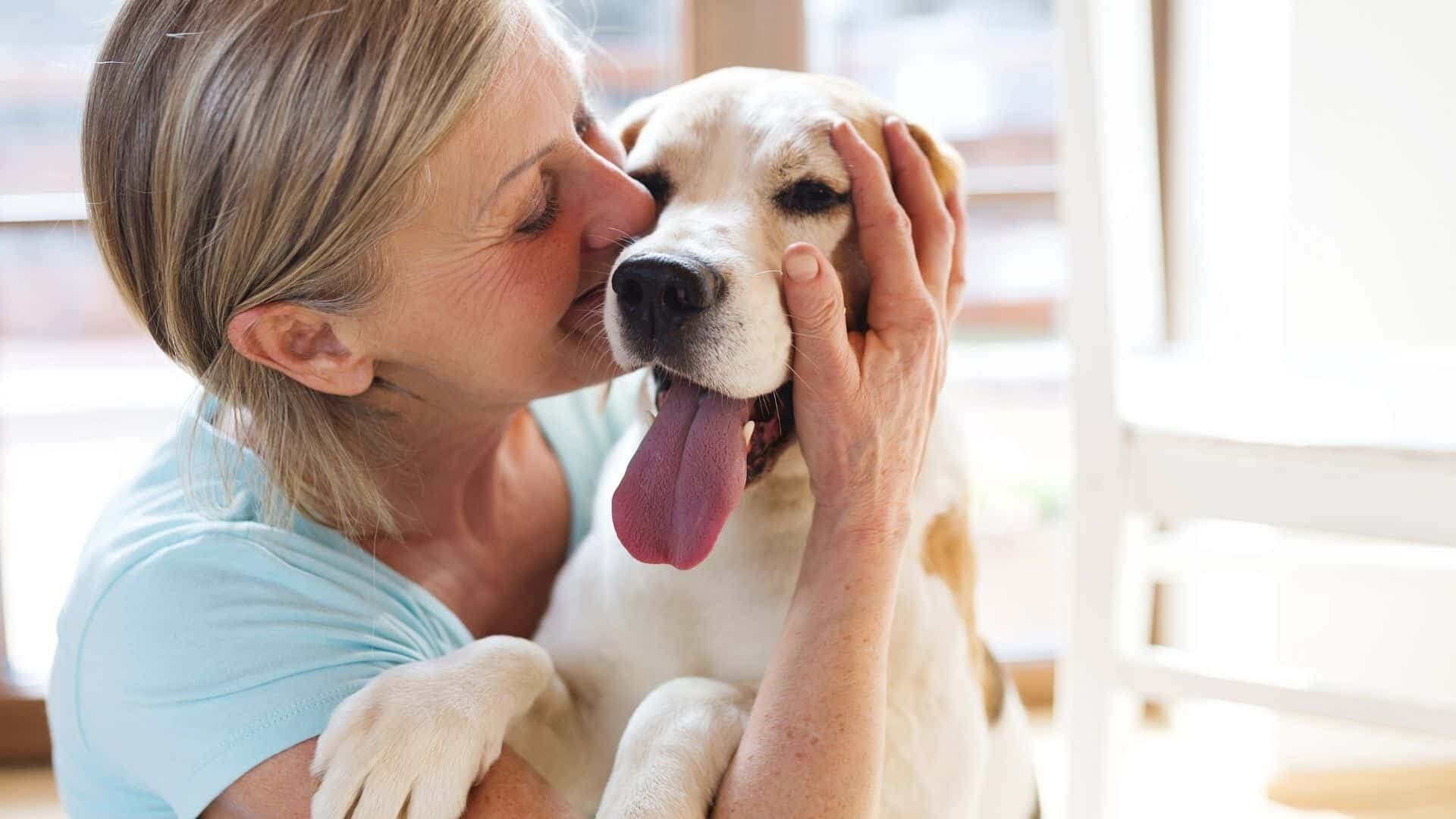Canine infectious respiratory disease (CIRD) or infectious tracheobronchitis are other names for the same disease in dogs. With an infectious bronchitis, the airways become inflamed, leading to an irritating cough and wheezing. Your dog’s cough may sound like they have something lodged in their throat at times.
Multiple microorganisms, including Bordetellabronchiseptica bacteria, canine adenovirus, parainfluenza virus, and mycoplasma, can cause kennel cough. When an uninfected dog’s respiratory secretions come into contact with those of an infected dog, the virus is transferred.
Symptoms of kennel cough can range from mild to life-threatening, depending on the dog. As a result, it’s critical to spot the signs of kennel cough and seek medical attention as soon as possible. It’s also possible to protect your dog from kennel cough through vaccination.
From what kennel cough in dogs is and its symptoms to treatment and prevention, here is all you need to know.
Why do dogs cough?

Dogs use their noses and mouths to learn about the world around them. Dust, germs, and the occasional grass stem are just some of the things your dog comes into contact with on a daily basis. It’s difficult to tell if your dog’s cough is serious or just the sound of her clearing her throat because of all of these possible causes.
There’s no need to be alarmed if your dog starts coughing from time to time. It’s not uncommon for people to repeatedly cough, especially if there are noticeable changes in breathing sounds or patterns.
What are the different types of coughs in dogs?
If your dog is coughing, you should pay attention to what kind it is. Identifying the sound of your dog’s cough can help you determine if he is in need of medical attention.
The sounds and types of coughs made by dogs have been linked to a variety of ailments. You should therefore pay close attention to the following types of coughs you may hear and take note of:
1. Dry cough
A dry, hacking cough can sound like a dog is trying to get something out of the throat or mouth when it’s coming from the nose or mouth. Symptoms of kennel cough include a raspy, hacking cough that sounds like a dog’s upper respiratory tract is inflamed.
2. Kennel cough
Kennel cough is an umbrella term for a disease that can be caused by any number of bacteria or viruses, and a deep, dry cough that sounds like a goose honk can be a sign. A goose-honk sound may also be a sign of tracheal collapse.
3. Phlegmy cough
Dogs with a wet, phlegmy cough may be suffering from the flu or have pneumonia. In the event that your dog sounds like it’s gargling or coughing up phlegm, this indicates a lower airway problem (or lungs). If you notice your dog coughing, it’s best to get him checked out right away.
It is possible that a high-pitched cough, which sounds like the dog is gagging, is a symptom of a sore throat.
4. Coughing at night
Having a cough that only occurs at night or while your dog is sleeping could be an indication of something more serious going on with their health. Keep in mind that a dog’s cough can worsen while they are sleeping, so tell your vet if it occurs only at night.
What are the natural remedies for coughing dogs?
There are a few at-home remedies for mild cases of kennel cough. Keep an eye out for signs that your dog’s cough is worsening or not improving.
1. Coconut Oil and Honey
Dogs with kennel cough, or canine tracheobronchitis, can be treated with honey, which is the most common natural remedy.
The most sought-after honey is Manuka, which is imported from New Zealand. Coconut oil, which is rich in fatty acids, has become increasingly popular as a supplement to honey in recent years.
It’s easy to get your dog to eat the remedy because honey and coconut oil are naturally tasty supplements. Honey is a favorite treat for many dogs, so try serving it to your pet on a spoon.
You should give half a teaspoon of honey to a small or medium-sized dog, and a full teaspoon to a large dog. Up to four doses should be taken per day.
One teaspoon of coconut oil per 10 pounds of body weight per day is the recommended dosage when using coconut oil. If your dog weighs 30 pounds, for example, you can give him one teaspoon in the morning, one at lunch, and one at bedtime. Reduce the amount of oil given if your dog’s stool becomes loose or greasy.
Do not give your dog oils if they have gastrointestinal problems or have had pancreatitis in the past.
2. Invest in a humidifier
While your dog is sleeping, a small humidifier can be placed near them for a more comfortable environment.
By moistening the air your dog breathes, the humidifier can alleviate respiratory tract irritation.
3. Aromatherapy
Dogs with cold symptoms may benefit from the soothing effects of certain botanicals when used properly. Pets may be unable to handle full-strength essential oils, which can be dangerous. You should always dilute essential oils before using them in your dog’s care routine.
4. Dogs with colds can benefit from the following essential oils
This oil has antiseptic qualities and may help alleviate a runny nose and congestion.
- Peppermint oil is a natural decongestant and energizing stimulant.
- Lavender essential oil has a calming and soothing effect.
Keep in mind that even a small amount of aromatherapy can have a big impact.
Aromatic Compounds
Essential oils seem to be popping up everywhere. Many over-the-the-counter human cough and cold remedies contain them.
Several essential oils have been found to be effective in the treatment of cough symptoms in recent research.
To help a coughing dog, you can spray his crate or bedding with a blend of eucalyptus, peppermint, and lavender.
This may help to alleviate the symptoms of a cold and clear the air. Other essential oils that may be helpful in treating a cough are:
- Thyme
- Bergamot
- Cinnamon
- Cypress
- Rosemary
- Geranium
Essential oils can be sprayed around your dog’s body or added to a diffuser.
You can think of it as a miniature humidifier that disperses essential oils into the air.
5. Take a look at the dog-friendly antioxidants
In order to help the immune system, fight off the virus more quickly, holistic antioxidants for dogs, like dimethylglycine (DMG), can be used.
6. Cherry bark syrup from wild cherry trees
Raw honey, apple cider vinegar, wild cherry bark, propolis, licorice root, slippery elm bark, eucalyptus oil, eucalyptus oil, lemon oil and ginger root are some of the ingredients in wild cherry bark syrup.
This syrup can be paired with honey. Dogs of all sizes should be fed half a teaspoon of dog food three times a day, while larger dogs should be fed a full teaspoon of dog food every three days.
7. Bone broth
When your dog has a cough, it’s imperative that you keep him hydrated. Coughing causes irritation and drying of the throat.
Bone broth or low-sodium chicken/beef broth can be used to encourage your dog to drink water. Dogs should be fed 1/4-1/2 cup (depending on their size) 2-3 times a day.
Coughing should subside in the next few days if you use one or more of these home remedies and give your dog plenty of rest.
If you notice any other symptoms or the cough gets worse, you should contact your veterinarian right away.
8. Raw honey
Many health benefits of honey have been documented, and one of the most well-known is its ability to reduce coughing. Adding a small amount of raw honey to your dog’s food can help alleviate a mild cough.
Honey has anti-inflammatory properties and aids the body’s defenses against viruses and bacteria. One of the most effective natural remedies for dog cough, thanks to its unique properties.
You must use raw honey, as pasteurization has destroyed all of its medicinal properties.
How to deal with a coughing dog?
A dry, hacking cough is the most common symptom of kennel cough, which affects many dogs. This illness can cause dogs to cough continuously throughout the day, especially if they are exercising more than usual. Although kennel cough can be a nuisance, it is rarely fatal. Dogs with this cough should be kept as comfortable as possible by their owners.
Keeping a dog with kennel cough in good health requires a few simple steps.
1. Your dog needs to be hydrated
Make sure your dog drinks plenty of water if he has kennel cough. The toxins in his body will be flushed out, which may speed up the virus’s removal. If your dog refuses to drink water, try giving him ice cubes to chew on. If your dog’s water is lacking in flavor, consider adding some chicken broth to it.
2. Smoke and other irritants should be kept out of your dog’s reach
Smoke and other irritants should be avoided while your pet is recovering from kennel cough. Coughing in your dog can be made worse if these chemicals are inhaled. It is recommended that smokers keep their cigarettes at least three feet away from their dog when they are in the house.
Put your dog in a separate room while you clean the rest of the house. The harsh chemicals in many household cleaners can exacerbate your dog’s cough.
3. Good rest and relaxation
Keeping your dog calm is critical if he has a cough that is exacerbated by excitement or overstimulation. Set up a secluded area where your dog can rest in peace. Add some soft blankets, a calming pet bed, and some snuggles from you to your pet’s room.
Dogs and cats can enjoy a peaceful night’s sleep thanks to pet-friendly heating pads or heated beds that are safe for pets. You can also warm yourself up by running a blanket or towel through the dryer, or snuggling up with your pet under the covers.
4. The harness is your best option
Dogs can benefit from switching from their collars to harnesses, but it’s not necessarily a “treatment.” When it comes to alleviating pressure on the trachea, Dr. Greenstein recommends switching out your dog’s collar for a harness. A sudden flare-up can be avoided by keeping your pup calm and closely monitored.
5. Suppress your dog’s cough by giving him a cough medicine
A cough suppressant like Robitussin may help if your dog is coughing up a storm. Only a veterinarian can prescribe this medicine, and it should only be used for a short period of time. Robitussin’s dosage will be determined by a veterinarian.
To help your dog recover from kennel cough, you should follow these guidelines. A trip to the vet is necessary if your dog’s cough does not go away. If your dog has a cough, he or she will be examined by a veterinarian who will likely prescribe an antibiotic.
With natural remedies, how long does it take a dog with a cough to recover?

Kennel cough recovery times can vary widely based on the severity of the infection. Within five to ten days of contact with other affected dogs, a dog may begin to exhibit symptoms. Most dogs recover within a week of the onset of their first symptoms.
Veterinarians are advised to be consulted if symptoms persist for more than ten days or there is no improvement. You should also see a vet if your pet’s coughing becomes more serious, such as difficulty breathing or wheezing.
Naturally, you can treat your dog’s kennel cough, but your dog’s veterinarian may have more insight and be able to help your pet recover more quickly from their illness more effectively.
The cost of treating kennel cough can be prohibitive for many people. Begin searching for pet insurance as soon as you suspect that your dog has kennel cough or is at risk.
Can Kennel Cough in dogs be prevented?
Kennel cough spreads easily from dog to dog. Keeping your dog away from other animals and going to the vet if you suspect he or she has the disease is essential.
When kennel cough is left untreated, it will go away in the vast majority of cases, but there are medications that can help hasten recovery or reduce symptoms while an infection is present. Bordetella-targeting antibiotics, as well as anti-cough medications, are among them.
Keeping your dog in a well-humidified area and using a harness instead of a collar, particularly for dogs that strain against a leash, may also help minimize coughing in your pet.
Kennel cough usually clears up in three weeks, but it can take up to six weeks for older dogs or dogs with underlying medical conditions to fully recover. If your dog’s condition doesn’t improve after a reasonable amount of time due to a persistent, serious kennel cough infection, consult your veterinarian right away.
Consult your veterinarian right away if your dog exhibits any of the following symptoms at any time: rapid breathing, not eating, or listlessness.
Vaccines for kennel cough are available in three forms: as an injection, a nasal mist, and a mouth spray. Because kennel cough and infectious tracheobronchitis can be caused by so many different types of bacteria and viruses, these vaccines do not guarantee protection. Vaccination against kennel cough will not treat an infection that has already occurred.
An annual kennel cough vaccination is recommended for dogs, but dogs at high risk of contracting the disease should receive the vaccines more frequently, such as every six months. Injectable vaccines can take longer to protect dogs from kennel cough.
Watch Signs of kennel cough in dogs | Video
Why is my dog constantly hacking up phlegm?
Dogs may benefit from the use of essential oils like eucalyptus and lavender, which can help alleviate their coughing and open their airways when they’re congested.
Why does my dog keep coughing and gagging?
Coughing and Foreign Objects
Occasionally, dogs’ airways become clogged with foreign objects or material that they’ve inhaled. If your dog’s cough suddenly becomes violent or sounds like gagging, it could be a sign that something is lodged in his throat and he’s unable to swallow.
In the case of dogs, is honey a good thing?
Yes, you can give your dog honey as a reward.
Honey is a superfood for both humans and dogs because of its numerous health benefits. Dogs love it because it is sweet, packed with antioxidants, provides a variety of vitamins and minerals, and provides relief from allergies and skin irritations.
For how long kennel cough is contagious?
After being infected with kennel cough, the virus can shed for up to three weeks. This is a good time to keep your dog away from other dogs to avoid the spread of disease. It is up to your veterinarian to tell you when it is safe for your dog to play with other dogs again.
What over-the-counter medication can I give my dog to treat kennel cough?
Keep all human medications out of your dog’s reach. The immune system of your dog can be modulated and boosted by holistic antioxidants for dogs, such as dimethylglycine (DMG). Most pet stores carry this as a supplement.
Bottom line

There are many reasons why dogs cough, from simple throat-clearing to potentially life-threatening conditions. Many different types of dog coughs exist, each with their own set of etiologies.
As soon as you notice your dog has a persistent cough, make an appointment with your veterinarian. Coughing in dogs can be caused by a variety of different conditions, and the sooner you take your dog to the veterinarian, the better the chances are that your pet will recover.
Bottom up
Please comment below about your ideas and share this “8 Natural Remedies for Dog Cough and Cold: Guide with Signs” article with your friends.
Stay tuned with our website to find out more exciting stuff. Don’t forget to check out our previous articles too.
Until the, Read about, What Are the Symptoms of Dogs with UTI: Guide to Cure






